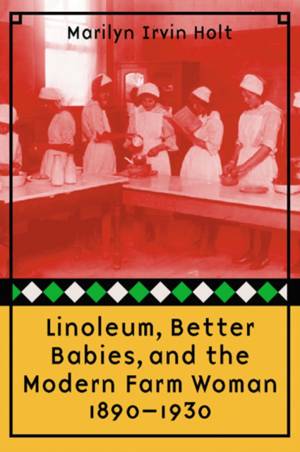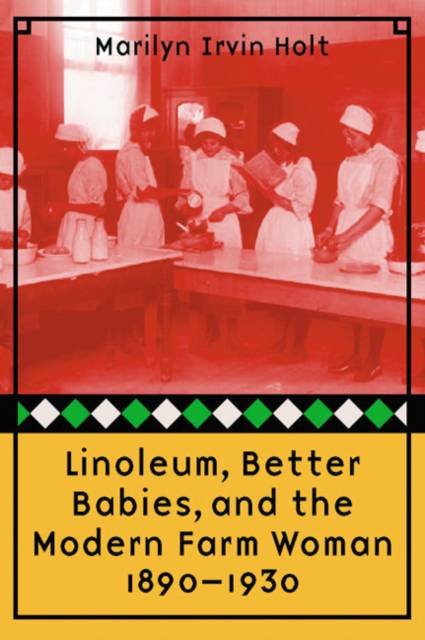
- Afhalen na 1 uur in een winkel met voorraad
- Gratis thuislevering in België vanaf € 30
- Ruim aanbod met 7 miljoen producten
- Afhalen na 1 uur in een winkel met voorraad
- Gratis thuislevering in België vanaf € 30
- Ruim aanbod met 7 miljoen producten
Zoeken
€ 38,45
+ 76 punten
Omschrijving
The Progressive Era, falling between the conspicuous materialism of the Gay Nineties and the excesses of the Roaring Twenties, promoted a vision of America united by an emphasis on science and progressive reform. The zeal to modernize business, government, and social relations extended to farm families and the ways women defined their roles. In this study of the expert advice offered by the domestic-economy movement, Marilyn Irvin Holt argues that women were not passive receptors of these views. Seeing their place in agriculture as multifaceted and important, they eagerly accepted improved education and many modern appliances but often rejected suggestions that conflicted with their own views of the rewards and values of farm life. Drawing on a wide range of sources--government surveys, expert testimony, and contemporary farm journals--many presenting accounts in farm women's own words, Holt carefully contrasts the goals of reformers with those of farm families. Anyone seeking a better understanding of the role of women in agriculture will find this a rewarding book.
Specificaties
Betrokkenen
- Auteur(s):
- Uitgeverij:
Inhoud
- Aantal bladzijden:
- 252
- Taal:
- Engels
Eigenschappen
- Productcode (EAN):
- 9780803224360
- Verschijningsdatum:
- 1/01/2006
- Uitvoering:
- Paperback
- Formaat:
- Trade paperback (VS)
- Afmetingen:
- 141 mm x 204 mm
- Gewicht:
- 358 g

Alleen bij Standaard Boekhandel
+ 76 punten op je klantenkaart van Standaard Boekhandel
Beoordelingen
We publiceren alleen reviews die voldoen aan de voorwaarden voor reviews. Bekijk onze voorwaarden voor reviews.











